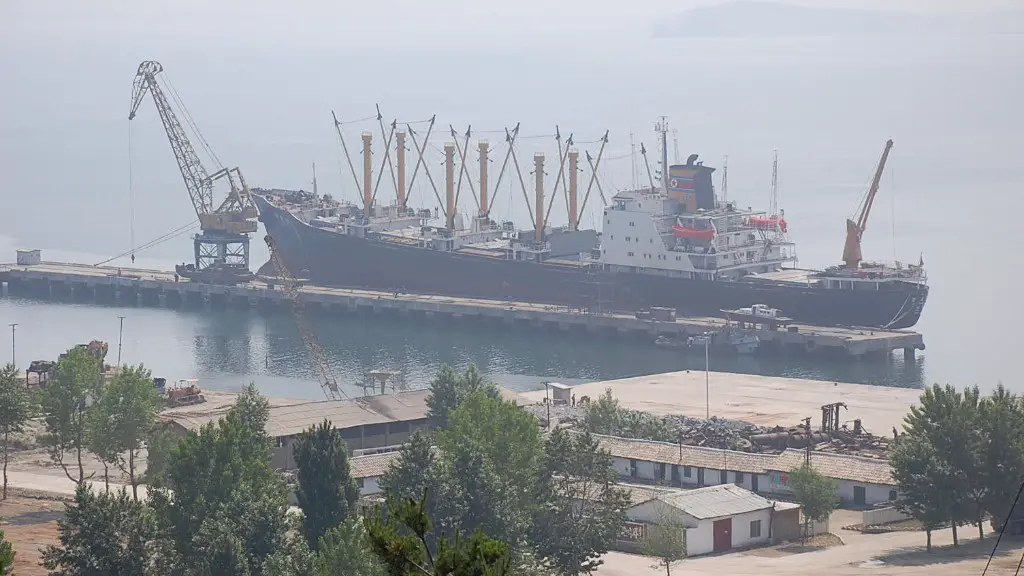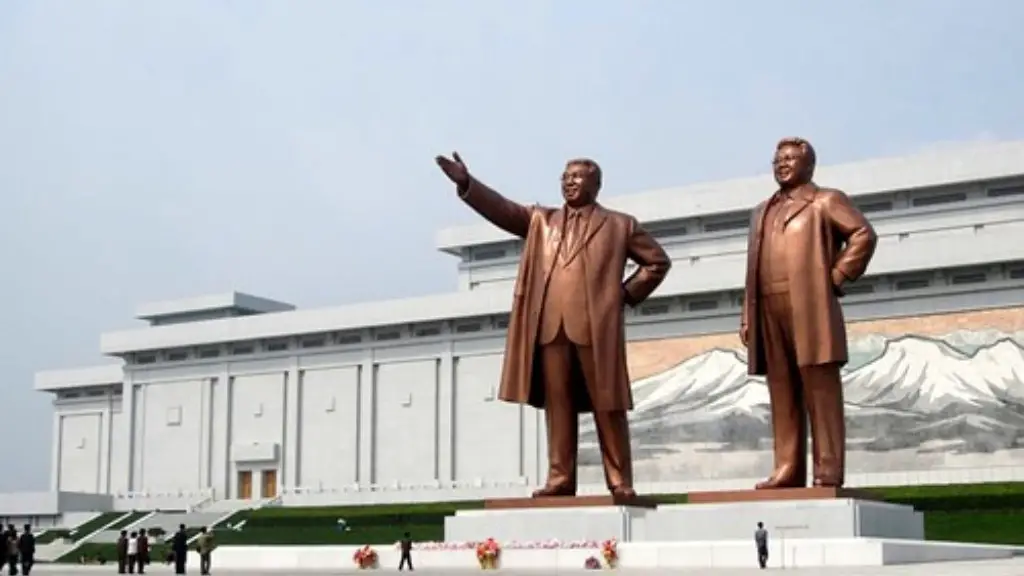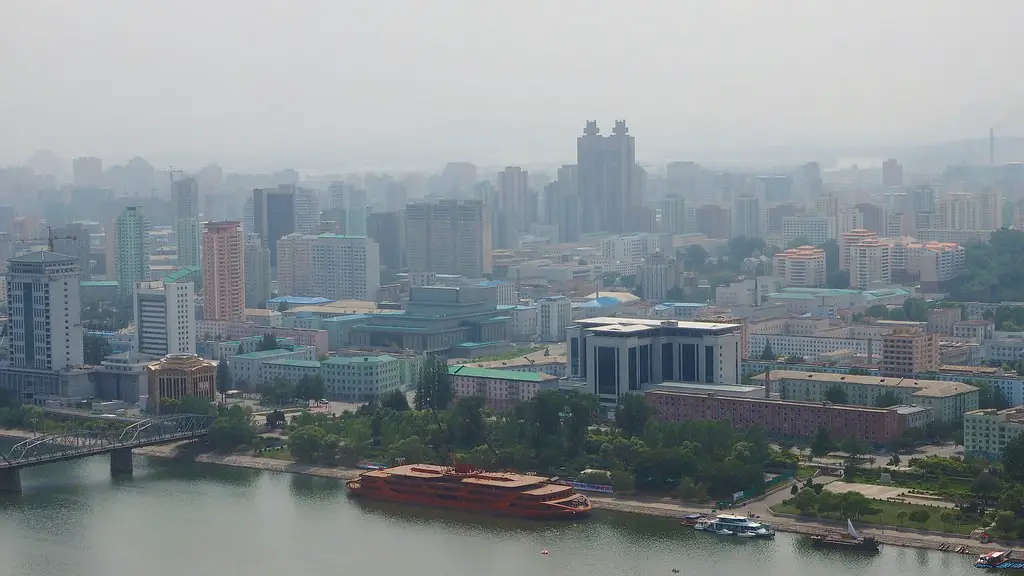The question of whether North Korea will use nuclear weapons continues to generate heated debate across the world. Over the past decade, the state has intensified its efforts to acquire nuclear technology and arms and has come closer to threatening the United States directly. News reports show that the state has tested its missiles which can reach the United States mainland, raising international concerns.
The experts have mixed views on the potential nucleation of the United States amidst the growing tensions between the two countries. Robert Einhorn, a Senior Fellow at the Brookings Institution, suggests that North Korea will not use nuclear weapons if their security and interest are not directly threatened. He believes that North Korean leader Kim Jong-un has established that the state wishes to be seen as a nuclear power by the US and other countries, but does not wish to initiate a nuclear war. On the other hand, Victor Cha, the Director of Asian Studies at Georgetown University believes it is entirely possible for North Korea to nuke the US if the state believes its security is intrinsically threatened by the United States.
The tensions between the two countries have escalated ever since Donald Trump assumed office in 2017. In 2018 Trump and Kim Jong-un held their first summit in Singapore, which aimed to bring peace between the two countries. However, tensions mounted again in the aftermath of the negotiations. North Korea’s display of Missile testing in 2019 and threats to the US have only heightened US concerns.
Increasing evidence of State’s nuclear capabilities has raised international concerns. Experts argue that North Korea has more than enough material to develop a nuclear bomb and technology to build missiles with a range of over 5000 kms. Reports show that North Korea has well-developed underground supply channels to attain nuclear materials. Analysts suggest that North Korea has already produced 60 nuclear warheads of various sizes and capable of reaching the mainland US.
The US has employed a number of economic measures in efforts to maintain peace.This includes sanctioning the North Korean economy and blocking the country’s access to international trade. However, it appears that these measures have failed to thwart North Korea’s nuclear ambitions. Moreover, the mutual distrust between the two countries has only increased in recent years.
Beyond the political dynamics between the two states, it is necessary to consider the possible implications on regional and global stability. If North Korea decides to use nuclear weapons, it could have damaging effects on its neighbors such as South Korea and Japan. It is also likely to lead to increased global insecurity, perhaps leading to the destabilization of the entire region.
Conflicting Views
The global community is divided in its outlook towards North Korea. US President Donald Trump has maintained a tough stance towards the state, warning against any missile testing, or provocation against the US or its allies. On the other hand, several countries are pushing for negotiations and dialogue among the two states. Russia and China, in particular, have been vocal in urging the two states to reduce hostilities, while also attempting to provide economic and diplomatic assistance to North Korea.
Another point of view is that sanctions imposed by the United States have only triggered North Korea to speed up the development of its nuclear arsenal. This view is shared by a number of experts and policy makers who believe that isolating North Korea could only lead to further escalation. This suggests that the US and other countries should continue to negotiate with North Korea in order to resolve the situation.
In light of this, a number of activists have called on the US to engage with North Korea and reduce military tensions in the region. They suggest that the US should focus on diplomatic engagement, rather than military assertiveness. Supporters of this view argue that the US should adopt a more dual-track policy wherein diplomacy and economic benefits play a larger role in curbing North Korea’s nuclear ambitions.
International Disarmament
International organizations have taken the initiative to reduce North Korea’s nuclear arms. In October 2018, the Scandinavian International Invitational Disarmament Initiative announced the launching of its ‘Track One’ initiative which was aimed at encouraging North Korea to reduce its nuclear arms. The initiative was backed by several international bodies, including the United Nations and the European Union.
International pressure on North Korea has come in the form of mounting military exercises in the region. In 2019, USA and South Korea conducted their annual joint military drills in an effort to deter North Korea from any provocations. This was backed by Japan, which sent its Self-Defense Forces to participate in the exercises. These efforts were further strengthened by UN Security Council which has imposed crippling sanctions on North Korea.
However, despite the mounting international pressure and military exercises, North Korea has remained largely unphased. The state has continued to violate UN resolutions and test its missiles, raising serious questions about the effectiveness of international efforts aimed at curbing its nuclear ambitions.
The professional community has continually urged for more robust and effective policies towards North Korea. Some have suggested that the US should offer economic incentives to North Korea, while other experts have advocated for a more hard-line approach in order to deter the state from taking any aggressive actions.
Conclusion
Regardless of the differing perspectives, it is clear that North Korea’s nuclear development is a serious issue that needs to be resolved. The international community must take a stronger stance against North Korea and ensure that the state is not able to threaten the global community with its nuclear arsenal. It is also important that the US and other states work towards fostering diplomatic relations with North Korea in order to reduce tensions and prevent a nuclear conflict.



